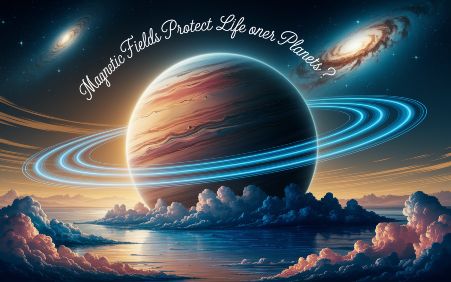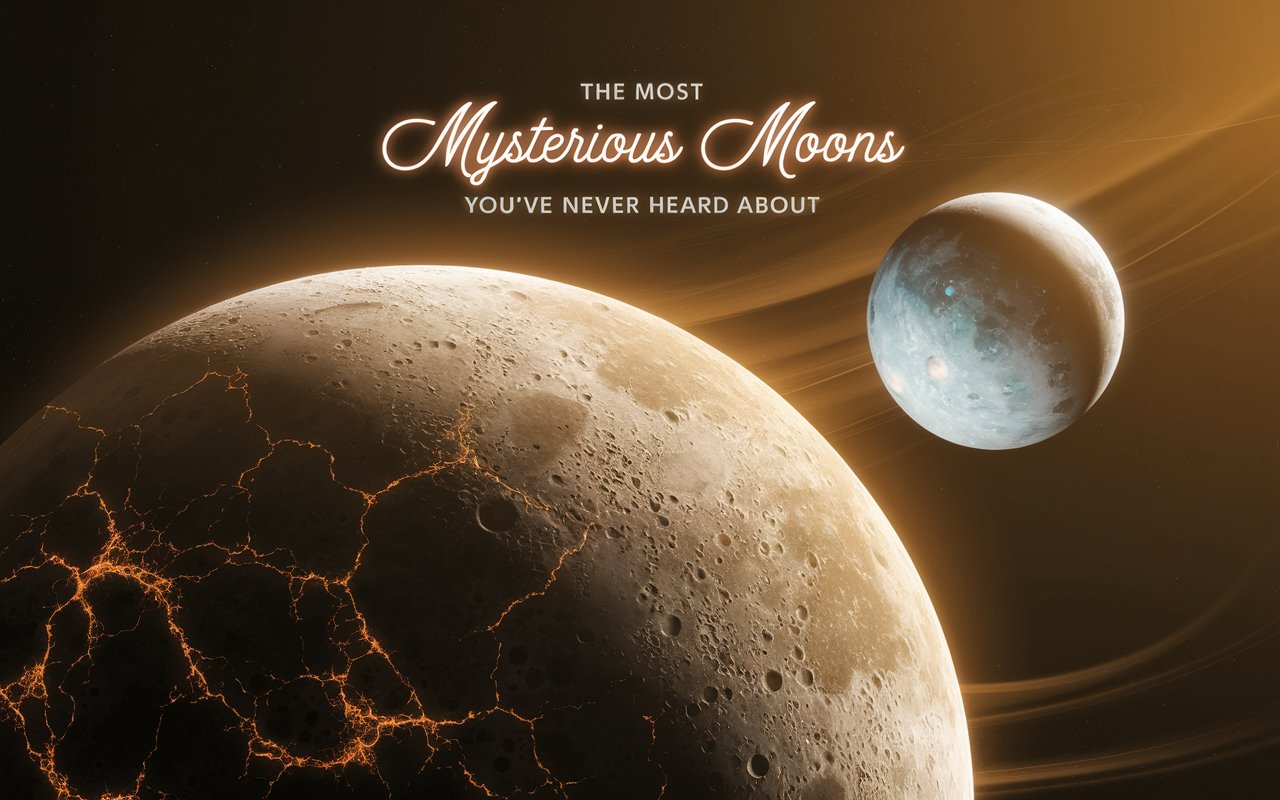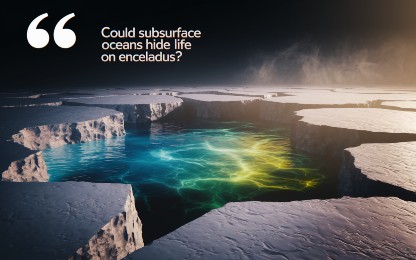Many people wonder if life exists beyond Earth. The key might be magnetic fields. Earth has one. It shields us from solar radiation. It also protects our atmosphere. Could magnetic fields do the same on other planets? This idea drives scientists to search for alien worlds. Magnetic fields could make planets habitable. They could help life survive harsh space conditions.
What Are Magnetic Fields?
Magnetic fields are invisible. They come from a planet’s molten core. They form when charged particles move. Earth’s magnetic field spreads into space. It creates a bubble called the magnetosphere. This bubble blocks solar winds. These winds carry harmful particles. Without protection, these particles strip away the air.
Why Do Planets Need Magnetic Fields?
Magnetic fields keep atmospheres stable. They protect against solar storms. These storms blast planets with high energy. Without protection, life cannot thrive. Mars once had water. Now it is dry. It lost its magnetic field long ago. The solar wind blew away its air. That made life impossible there.
Could Magnetic Fields Help Life Elsewhere?
Many exoplanets orbit distant stars. Some may have magnetic fields. These fields could protect water and air. That would help life survive. Life needs water and stable air. Without both, it struggles. So magnetic fields might support alien biology. They may be the key to finding life.
Life and Radiation
Radiation harms living cells. Earth’s magnetic field blocks most of it. Without it, cancer risk goes up. Electronics also fail faster. If a planet lacks a field, life faces danger. With a strong field, radiation stays out. That improves the chance of survival. Especially for fragile microbial life.
Earth as a Model for Habitability
Earth teaches us what works. It has water and a thick atmosphere. The magnetic field keeps them safe. That balance allows life to grow. Other planets might copy this balance. But they need a strong magnetic field. Without it, even Earth-like planets could stay dead.
Planets in the Habitable Zone
Some exoplanets lie in the habitable zone. This zone is not too hot or cold. Water could exist there. But location is not enough. A planet needs more. It must hold on to air and water. Magnetic fields help do that. So they are just as vital as distance.
How Magnetic Fields Form
Most fields come from molten iron cores. As the metal flows, it makes electric currents. These currents create fields. That process is called the dynamo effect. Earth has one. So do Jupiter and Mercury. But Venus does not. That may explain why Venus lacks life signs.
Can We Detect Magnetic Fields?
Detecting fields from Earth is hard. But scientists have new tools. Space telescopes now scan exoplanets. They check radio waves and stellar winds. Changes in these signals hint at fields. More missions will improve this work. Soon we may find planets with fields like Earth.
Alien Life and Magnetic Shields
Alien life needs safe zones. Magnetic shields create those zones. Deep space is full of radiation. Without a shield, life must stay underground. That limits evolution. With a shield, life can move to the surface. It can grow faster. It can become complex. It might even travel in space.
Could Mars Regain a Magnetic Field?
Some want to terraform Mars. That means making it like Earth. But Mars has no magnetic field. That causes big problems. Without it, air leaks into space. Solar storms hit the ground. Some plans suggest placing magnets in orbit. These could act as a fake field. But they would need much power.
Jupiter’s Moons and Strong Fields
Jupiter has a huge magnetic field. Its moons feel the effect. Some moons have ice. Beneath the ice is water. One moon is Europa. It may hold life. The magnetic field protects it. That raises hope. Maybe alien microbes live below. Future missions will check.
Can Artificial Fields Protect Humans?
Humans may travel far soon. But we must stay safe. Deep space has no shield. Artificial fields might help. Spacecraft could generate them. Some tests have started. Results show promise. But strong fields use much energy. We need better tech. Only then can humans live beyond Earth.
The Role of Star Type
The kind of star matters too. Some stars flare often. Their flares send deadly rays. Planets around them need strong shields. Weak fields let radiation in. That kills life. So star choice affects habitability. Red dwarfs are common. But they flare often. Planets there must have great shields.
Future Discoveries and Tools
More telescopes will launch soon. They will check thousands of planets. Some will spot magnetic signs. Others will study atmospheres. That data will show if fields matter. It could prove that magnetic fields support life. Or show that life adapts without them. Either way, the answer is near.
Pros and Cons of Magnetic Fields for Life
| Pros | Cons |
|---|---|
| Protects from harmful radiation | Not all planets can form strong fields |
| Keeps atmosphere from escaping | Detection is very difficult |
| Improves chance of surface life | Some stars are too powerful to block |
| Supports stable climate conditions | Artificial fields need too much energy |
| May help alien life evolve faster | Life may still need other conditions met |
Frequently Asked Questions
1. Do all planets have magnetic fields?
No. Only some planets have them. Earth and Jupiter do. Venus and Mars do not.
2. Why is Earth’s magnetic field important?
It protects the atmosphere and blocks radiation. That keeps life safe and air stable.
3. Can we create magnetic fields for other planets?
We can try. Ideas exist. But current tech is not strong enough for full success.
4. How do magnetic fields form?
They form from moving metal inside a planet. This movement creates electric currents and fields.
5. Could we detect magnetic fields on exoplanets?
Yes. Tools can spot signs. Future missions will help confirm those results.
Final Thoughts
Magnetic fields may be vital for life. They block deadly space threats. They help keep air and water. They offer clues in the search for aliens. Many planets may have them. Others may not. Scientists will keep looking. With better tools we may soon find the truth. Life might need magnetic fields to survive. Or maybe it will surprise us again.





